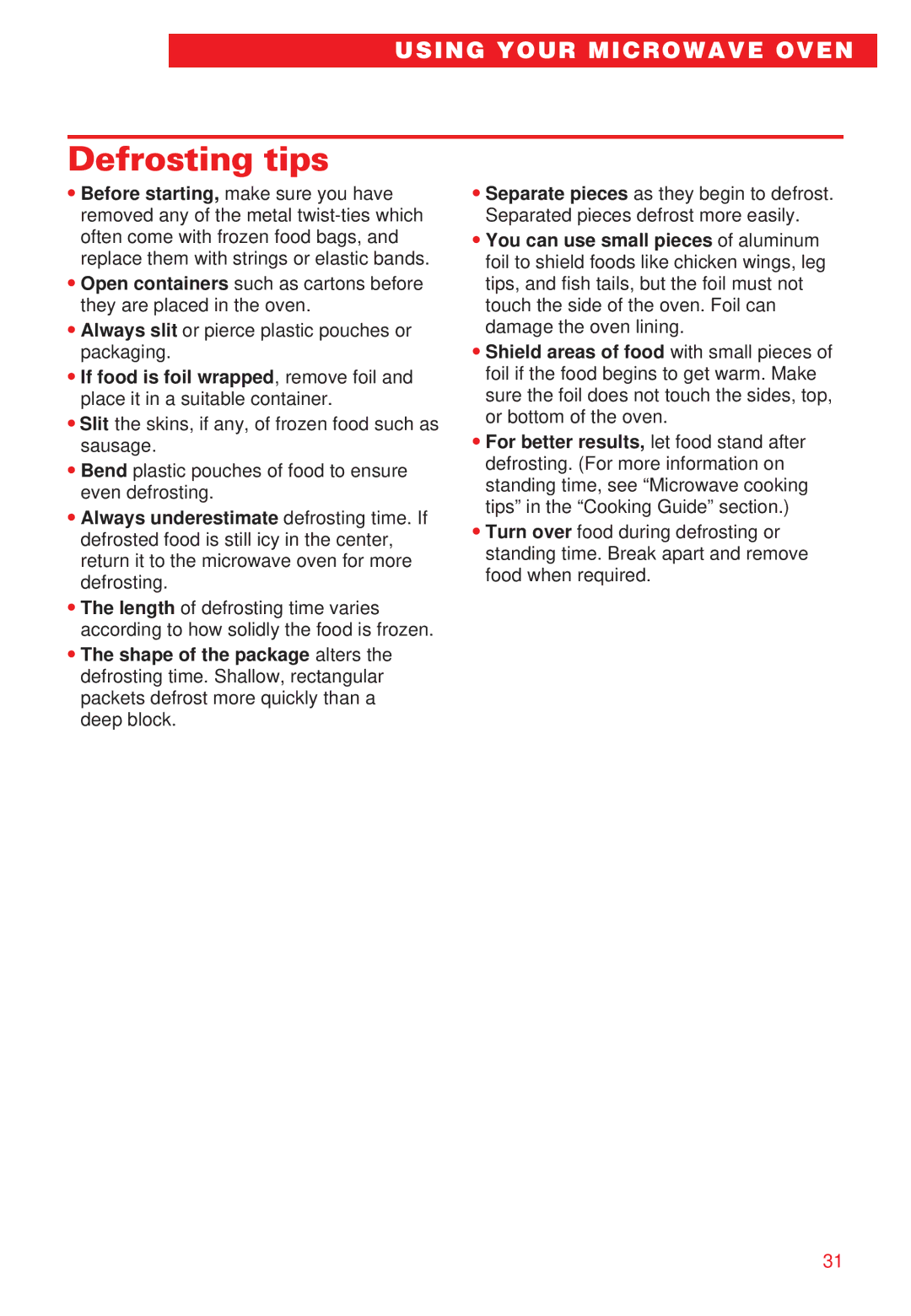
USING YOUR MICROWAVE OVEN
Defrosting tips
•Before starting, make sure you have removed any of the metal
•Open containers such as cartons before they are placed in the oven.
•Always slit or pierce plastic pouches or packaging.
•If food is foil wrapped, remove foil and place it in a suitable container.
•Slit the skins, if any, of frozen food such as sausage.
•Bend plastic pouches of food to ensure even defrosting.
•Always underestimate defrosting time. If defrosted food is still icy in the center, return it to the microwave oven for more defrosting.
•The length of defrosting time varies according to how solidly the food is frozen.
•The shape of the package alters the defrosting time. Shallow, rectangular packets defrost more quickly than a deep block.
•Separate pieces as they begin to defrost. Separated pieces defrost more easily.
•You can use small pieces of aluminum foil to shield foods like chicken wings, leg tips, and fish tails, but the foil must not touch the side of the oven. Foil can damage the oven lining.
•Shield areas of food with small pieces of foil if the food begins to get warm. Make sure the foil does not touch the sides, top, or bottom of the oven.
•For better results, let food stand after defrosting. (For more information on standing time, see “Microwave cooking tips” in the “Cooking Guide” section.)
•Turn over food during defrosting or standing time. Break apart and remove food when required.
31
